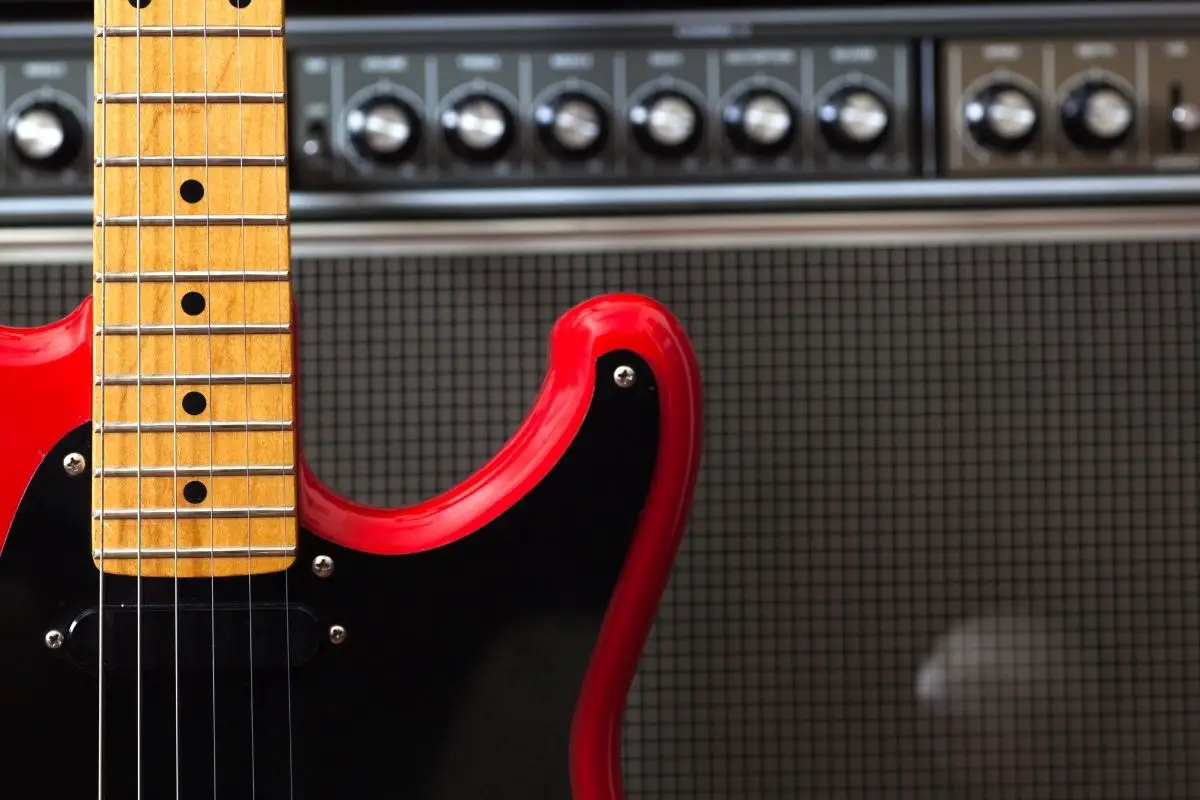Best Music Distribution Platform

There are many music distribution platforms you can work with and use to upload your music to a variety of different streaming services. If you want your music on Spotify, Apple Music, Amazon Music, and other services, you will want to learn about which service would best distribute your music.
In our opinion, the best music distribution platform is DistroKid. This service only costs about $20 per year, which gets you unlimited uploading, artists can keep all of their profits, and they have the ability to post music to Spotify, Apple Music, TikTok, Pandora, Amazon, Instagram, YouTube, iHeartRadio, and more.
If you are curious about this music distribution platform and how it works, keep reading for more information below. We also talk about some other music distribution services you may want to try out.
DistroKid
DistroKid is a great platform that is cheap and very easy to use. Other companies make artists pay to use the platform and pay per song or album they release. These companies also allow artists to keep only a fraction of the money that they earn from people downloading and listening to their music. Considering the current payout rates for streaming as well, that’s just a fraction of a fraction of what artist’s should be making.
DistroKid is not like other music distribution companies. DistroKid allows artists to keep all the rights to their music, and they only pay a fee once every year. This is great, as it means you won’t have to pay any fees per song you upload or give up a percent of your earnings.
Logistically, DistroKid makes a lot of sense to use, but what are some other reasons you should use it? Well, they help you with a lot of other aspects of music-making outside of distribution. They will help you promote your music, create and share videos without needing a designer or animator, and they will help you provide links to your fans so they can easily pre-save and listen to your music.
It is extremely easy to make money through DistroKid. As soon as you upload your music, the service puts it on the various outlets you choose to use. They will send you the money you earn on those platforms directly in a consistent and timely manner.
DistroKid not only puts your music on streaming services, but it also puts them in digital stores so that your music can be purchased and downloaded as much as possible.
DistroKid prides itself on its amazing speed of distribution, breadth of platforms that it can upload songs to, and the features of its service. For instance, DistroKid gives each artist access to daily statistics about their music, including the trends, number of buys, and other notable facts. They operate on a simple and user-friendly interface that has a ton of features available.
One of the best features that DistroKid offers is the ability to upload an unlimited number of songs and albums per year. So, for only $20 per year, you can post more than 1,000 songs and 100 albums if you really want to. They have no caps or fees associated with uploading music, which makes this platform extremely unique.
Distrokid pricing does change if you want to upload for multiple artists, which is why they offer plans for individual artists, team members like managers, and record labels. Another drawback is the customer service can be a bit slow. They can take a few days to up to a week to get back to your ticket in some cases, so you should keep that in mind if you have any tight album release timelines.
For a complete walkthrough on how to upload with Distrokid, check out Raw Technique Studios’ guide below:
Throughout the year, if you make a song and feel good about it, they want you to have the support and freedom you need to share it with the world and post it on multiple streaming platforms. They support your spontaneous creativity and want you to not be worried about fees associated with uploading songs, so they have made it as headache-free as possible.
One feature that users love is the ability to set exact release dates for music. This helps you focus on other aspects of your music career and promote your soon-to-be-released songs while DistroKid handles the rest.
One con users have is that the company does not list a way to contact them about an issue on their website, so you will likely have to resolve an issue with a bot. If a human is needed, it may take a while to reach a real person who can fix the issue over email. However, many people say they do not have issues with the company or the software malfunctioning, so customer service is not often needed.
Many artists have said that they have used DistroKid for anywhere between 1-5 years without any issues, so it is definitely worth looking into and trying out for yourself.
DistroKid will ensure music that you are going to release doesn’t violate any licensing laws or copyright infringement. It will also get your music registered under these laws so if someone tries to copy your music, they will either be unable to upload, or receive DMCA notices after uploading.
Typically, Distrokid will reject the song or the album/cover art and tell you what you need to fix so you can take care of it, submit it again, and get it approved. If you figure things out and then submit your music, you likely won’t run into any issues unless they find out about something you did not know about.
Overall, DistroKid is cheap and easy to use, and it has a lot of helpful features available.
CD Baby

CD Baby is a commonly used music distribution platform, mainly for independent artists. There are many pros to using this platform; however, you have to pay for each song or album you put out. This pays for the work that the company does to promote, share, and make products for you. They often make vinyl records and CDs for the artists that use the platform.
CD Baby can be hard to use at times, but everyone loves their customer service. CD Baby beats DistroKid in this category, and it is very helpful for artists to have the support and quality of help they pay for.
One other difference is that CD Baby has multiple plans that you can utilize, although they each cost a different amount of money. It costs $9.99 to release a standard single or a standard album. CD Baby costs $49.99 for the pro selection, which applies to both a pro single and a pro album.
It can be scary to pay that much money for every release you do, but the cost can be worth it in the long run, if you have the streams and sales to make up for it. Which service you choose really depends on your situation and the number of followers or listeners you have.
Now that you know the standard cost is $9.99 for a single or album, you should know that there are no other fees associated with this service. This means that you won’t have to pay for a subscription to use this service.
CD Baby will help you with music distribution, YouTube monetization, sync licensing, publishing administration, and CD and vinyl sales. This is great for a paid service, and you will have a lot of avenues for sales if you use this platform.
Plus, when you pay for the pro services, they will do more distributing and selling for you, which may make the pro services worth the cost, as you will make more money in the long run.
CD baby also offers publishing services, helping you collect royalties from published works that use your songs worldwide.
Amuse
Amuse is a great service that helps artists with their music distribution. The best part is that Amuse is a free service as long as you only use the basic plan. The other two plans cost $24.99 or $59.99 per year. Each plan has services that will help your music career achieve more success by reaching more fans.
Their system works very smoothly, and the platform is easy to access and use. They support all of their artists and work to help them keep 100% of the rights and royalties from their music.
To make money through the platform, simply upload your music, track the streams your music gets, then get paid! However, keep in mind that it can take a while for you to get paid because music streaming services gather data over the course of a month or two, and it takes another month or so for the music distribution platform to calculate what you need to be paid. However, when you are earning an income from your own art, the wait is worth it. This applies to all music distribution services.
This platform will also help you earn money on YouTube. They do this by helping you create a YouTube ID for your music. This means that when a creator makes a video and uses your music, you get paid for it.
Additionally, Amuse helps you to enable pre-saving on Apple Music and Spotify so that your listeners can save songs before they are released, which can help with your first week streaming numbers and overall marketing strategy for new releases.
This is a newer platform, but it has been quite successful as a music distributor. In fact, Old Town Road by Lil Nas X was initially uploaded on Amuse, before it was propelled to the household name it is today.

Other Music Distribution Services
While DistroKid is the clear favorite music distribution platform among musicians, and while CD Baby and Amuse stand out among the crowd of music distribution companies, there are many other music distribution services that you could choose to use. Some of them are listed below.
Believe
Believe is the second-largest music distribution platform used by indie music artists around the world. The size of this platform means that if you use it, you can expect to get the same level of premier service offered to thousands of other artists. They offer both digital distributions on most platforms and physical distribution of CDs and vinyl.
The thing that makes Believe an inferior platform to DistroKid is how much it costs for you to use it. Believe starts with a yearly subscription of $49.99. They follow this up with fees of $9.99 to upload a single song or $29.99 to upload an album to the platform.
Remember that Distrokid only costs $20 a year, and they do not charge you to upload your songs or albums. While it might be nice to work with a globally recognized company in the industry, you definitely have to consider the cost to use Believe, especially if you are a new artist.
ReverbNation
ReverbNation is another music distribution platform that you may have heard about. ReverbNation prides itself on being a platform that provides benefits to a variety of music artists. The main way that they do this is by segmenting their platform into a variety of paid tiers.
Users of the free tier can upload their songs to the platform as much as they like. The paid tiers cost $12.95 and $19.95 respectively. ReverbNation is not as quite as good of a platform as Distrokid because it doesn’t allow you to distribute your music to other platforms unless you are in the highest-paid tier. ReverbNation customer service is also poor at best, and people that use this platform for free can expect to get no help from customer service if they have issues using the platform.
RouteNote
Like many of the others on this list, RouteNote is an established company with a lot of experience working with musicians. They are particularly focused on getting your music out to as many streaming and music sites, as they can distribute your music to over 200 sites. They also partner with many sites in Asia, which is unique among large music distribution companies. This allows people around the world to be exposed to your music.
However, RouteNote has a couple of failings that make it come up short when compared to platforms like DistroKid. While RouteNote has a broad distribution network, it takes a long time for your music to get from RouteNote to these platforms. This means that it will likely take a while for your songs to be put on streaming platforms like Spotify and Apple Music.
Some musicians have also noted that it can take almost 2 months to get the money you have earned from your songs on this platform. This means that if you want to get your money earned from your songs on this platform fast, you will likely be disappointed.
While the overall best music distribution platform is DistroKid, it is ultimately up to you which one you use.









